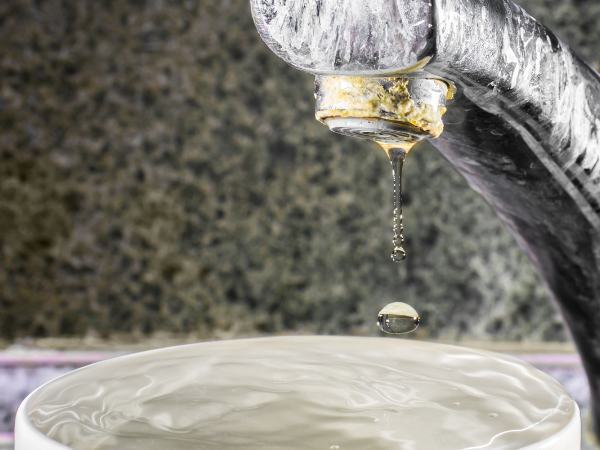Can Your Water Cause Breakouts? The Surprising Link Between Hard Tap Water and Acne

Ever wondered why your skin still breaks out even with the perfect skincare routine? The culprit might not be your cleanser or moisturizer—it could be your tap water. So, can hard water cause breakouts? The short answer: yes. Hard water contains a mix of minerals and chemicals that can disrupt your skin’s natural balance, clog pores, and trigger acne.
What Is Hard Water?
Hard water is rich in dissolved minerals, primarily calcium and magnesium, and sometimes even iron. While these minerals are harmless to drink, they can wreak havoc on your skin. When mixed with soap, they form a residue that’s difficult to rinse off completely, leaving behind a thin film that traps oil, dirt, and bacteria on the skin’s surface.
This buildup leads to clogged pores, irritation, and inflammation—key contributors to acne breakouts.
Can Hard Water Cause Acne?
Yes—hard water can absolutely contribute to acne. When your cleanser doesn’t rinse off properly, it leaves behind residue that interferes with your skin’s natural barrier. This can lead to dryness, overproduction of oil, and more frequent breakouts.
According to Dr. Dennis Gross, hard water can make acne worse by stripping away the skin’s protective oils and leaving behind pore-clogging minerals. Over time, this imbalance can lead to chronic breakouts, larger pimples, and even irritation conditions like rosacea.
Common Chemicals in Hard Water That Trigger Breakouts
1. Calcium and Magnesium
These minerals react with soaps and cleansers to form a scum that clogs pores. The result? Increased irritation and breakouts, especially for those with sensitive or oily skin.
2. Iron
Iron in tap water can oxidize when it meets your skin, causing free radical damage and inflammation. It can also contribute to clogged pores and dullness. Learn more about the side effects of iron in drinking water.
3. Chlorine
Chlorine, often added to tap water as a disinfectant, strips the skin of natural oils and disrupts its moisture barrier. This leads to dryness, irritation, and an overproduction of sebum—another acne trigger.
4. Heavy Metals and Impurities
Trace metals like copper and lead can further stress the skin, contributing to inflammation and long-term barrier damage.
How to Protect Your Skin from Hard Water Damage
1. Install a Water Softener
A water softener removes calcium and magnesium ions from your water, reducing residue and improving skin feel after washing.
2. Use a Reverse Osmosis Filtration System
Reverse osmosis (RO) systems effectively remove minerals, chlorine, and other impurities at the source—leaving your water clean, soft, and skin-friendly.
3. Moisturize and Rebalance
Choose moisturizers with hydrating ingredients like hyaluronic acid or ceramides to replenish moisture lost due to hard water.
4. Use Gentle, pH-Balanced Cleansers
Avoid harsh soaps that react with hard water. Instead, opt for sulfate-free, pH-balanced cleansers that minimize residue.
The Bottom Line
If you’ve been wondering can hard water cause breakouts—you’re not imagining things. The minerals and chemicals in your tap water can irritate your skin, clog pores, and worsen acne. By improving your water quality with a filtration or softening system from Isopure Water, you can protect your skin and achieve the clear, balanced complexion you deserve.




